 | TODAY IN SCIENCE HISTORY
NEWSLETTER - 30 JUNE |
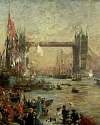 On 30 Jun 1879, some businessmen incorporated to form the California Electric Light Company, and within three months they had the first U.S. central station providing electricity to some nearby businesses and hotels. It was a cheaply-built, makeshift facility with dynamo, steam engine, boiler, fuel piles, oil and greasy waste all crammed into a small building. With little thought to the fire risks, unsurprisingly, the pioneering works burned on 24 Apr the next year. Undaunted a bigger, better facility was built. The article California Electric Light Company gives some of the early history of the enterprise, together with an interesting perspective from an insurance company inspector on the nature of the start-ups of that era. On 30 Jun 1879, some businessmen incorporated to form the California Electric Light Company, and within three months they had the first U.S. central station providing electricity to some nearby businesses and hotels. It was a cheaply-built, makeshift facility with dynamo, steam engine, boiler, fuel piles, oil and greasy waste all crammed into a small building. With little thought to the fire risks, unsurprisingly, the pioneering works burned on 24 Apr the next year. Undaunted a bigger, better facility was built. The article California Electric Light Company gives some of the early history of the enterprise, together with an interesting perspective from an insurance company inspector on the nature of the start-ups of that era.
On 30 Jun 1894, the Tower Bridge was officially opened, the iconic bascule bridge across the River Thames in London. The foundation stone was laid on 21 Jun 1886. It this newsletter's Feature for Today, earlier this month. If you missed it then, today is another chance to read the article from The Romance of Modern Engineering (1908).
|
 On 30 Jun 1917, Sir Joseph Dalton Hooker was born, an eminent Victorian biologist and explorer who was one of Charles Darwin's closest collaborators. Today's Science Store pick is: Sir Joseph Dalton Hooker: Traveller and Plant Collector, by Ray Desmond, who provided a well-illustrated, well-written an in-depth outline of the travel which under-pinned this remarkable man's contribution to botany. Many gardeners and lovers of rhododendrons know of his plant collecting expedition in the Himalayas, but few are aware of his participation in Sir James Clark Ross' epic voyage to Antarctica in 1839-43, of his visits to Syria and Lebanon in 1860, to the Atlas Mountains in Morocco in 1871, and to the Rockies and California in 1877. At some risk to his own safety and health (he came close to drowning in the Antarctic Ocean and was imprisoned by the Rajah of Sikkim), he discovered many new species of plants and introduced a number of attractive flowers into British gardens. When Hooker encountered European species growing in the southern hemisphere he naturally wondered how they got there. He shared his theories on plant distribution and other topics of mutual interest with Darwin to whom he also sent scientific data acquired during his travels. Price $49.50, save 22%, New $38.52. Also available Used from $24.99 (as of time of writing). On 30 Jun 1917, Sir Joseph Dalton Hooker was born, an eminent Victorian biologist and explorer who was one of Charles Darwin's closest collaborators. Today's Science Store pick is: Sir Joseph Dalton Hooker: Traveller and Plant Collector, by Ray Desmond, who provided a well-illustrated, well-written an in-depth outline of the travel which under-pinned this remarkable man's contribution to botany. Many gardeners and lovers of rhododendrons know of his plant collecting expedition in the Himalayas, but few are aware of his participation in Sir James Clark Ross' epic voyage to Antarctica in 1839-43, of his visits to Syria and Lebanon in 1860, to the Atlas Mountains in Morocco in 1871, and to the Rockies and California in 1877. At some risk to his own safety and health (he came close to drowning in the Antarctic Ocean and was imprisoned by the Rajah of Sikkim), he discovered many new species of plants and introduced a number of attractive flowers into British gardens. When Hooker encountered European species growing in the southern hemisphere he naturally wondered how they got there. He shared his theories on plant distribution and other topics of mutual interest with Darwin to whom he also sent scientific data acquired during his travels. Price $49.50, save 22%, New $38.52. Also available Used from $24.99 (as of time of writing).
Yesterday's picks: Explorer of the Universe: A Biography of George Ellery Hale, by Helen Wright. Also: The Roads That Built America: The Incredible Story of the U.S. Interstate System, by Dan McNichol,
For picks from earlier newsletters, see the Today in Science Science Store home page. | |
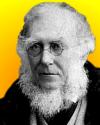
| "These parsons are so in the habit of dealing with the abstractions of doctrines as if there was no difficulty about them whatever, so confident, from the practice of having the talk all to themselves for an hour at least every week with no one to gainsay a syllable they utter, be it ever so loose or bad, that they gallop over the course when their field is Botany or Geology as if we were in the pews and they in the pulpit ... There is a story somewhere of an Englishman, Frenchman, and German being each called on to describe a camel. The Englishman immediately embarked for Egypt, the Frenchman went to the Jardin des Plantes, and the German shut himself up in his study and thought it out!" - Sir Joseph Dalton Hooker, English botanist and explorer (born 30 Jun 1817)  |
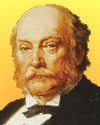 | "Some proofs command assent. Others woo and charm the intellect. They evoke delight and an overpowering desire to say, 'Amen, Amen'." - Sir John Rayleigh, English physical scientist (died 30 Jun 1919)  |
| Before you look at today's web page, see if you can answer some of these questions about the events that happened on this day. Some of the names are very familiar. Others will likely stump you. Tickle your curiosity with these questions, then check your answers on today's web page. |
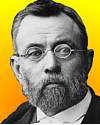
|  Sir Ferdinand von Mueller, born 30 Jun 1825, became another country's greatest nineteenth-century scientist, with an international botanical reputation. Mueller made contributions to many fields of science, but his major contribution was to botany. This fact is evident alone in the hundreds of this country's plant names which are followed by 'F. Muell'. Sir Ferdinand von Mueller, born 30 Jun 1825, became another country's greatest nineteenth-century scientist, with an international botanical reputation. Mueller made contributions to many fields of science, but his major contribution was to botany. This fact is evident alone in the hundreds of this country's plant names which are followed by 'F. Muell'.
 What country was the focus of his work? |
 |  Sir Joseph Dalton Hooker, born 30 Jun 1817, was an English botanist noted for his botanical travels and studies and for his encouragement of a certain scientist's theories. Sir Joseph Dalton Hooker, born 30 Jun 1817, was an English botanist noted for his botanical travels and studies and for his encouragement of a certain scientist's theories.
 What other scientist's theories did he support? |
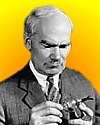
|  Lee De Forest (1873-1961) was the American inventor of an important device which made possible live radio broadcasting and became the key component of all radio, telephone, radar, television, and computer systems before the invention of the transistor in 1947. Lee De Forest (1873-1961) was the American inventor of an important device which made possible live radio broadcasting and became the key component of all radio, telephone, radar, television, and computer systems before the invention of the transistor in 1947.
 What was this important device that he invented? What was this important device that he invented? |

|  John William Strut Rayleigh (1842-1919) was an English physical scientist who made fundamental discoveries in the fields of acoustics and optics that are basic to the theory of wave propagation in fluids. But when he received the Nobel Prize for Physics in 1904, it was for his successful isolation of a certain trace gas in the atmosphere. John William Strut Rayleigh (1842-1919) was an English physical scientist who made fundamental discoveries in the fields of acoustics and optics that are basic to the theory of wave propagation in fluids. But when he received the Nobel Prize for Physics in 1904, it was for his successful isolation of a certain trace gas in the atmosphere.  Which gas did he isolate? Which gas did he isolate? |

|  On 30 Jun 1972, despite the super-accuracy of atomic clocks, a one second adjustment was made to the world's time. On 30 Jun 1972, despite the super-accuracy of atomic clocks, a one second adjustment was made to the world's time.
 Why was this adjustment made? |
|  On 30 Jun of a certain year, General Motor's Corvette presented the first plastic laminated car. On 30 Jun of a certain year, General Motor's Corvette presented the first plastic laminated car.
 In what decade was this day? |

|  On 30 Jun 1973, observers aboard the Concorde jet spent 72-min observing a certain phenomenon. On 30 Jun 1973, observers aboard the Concorde jet spent 72-min observing a certain phenomenon.
 What did the passengers observe? |
When you have your answers ready to all the questions above, you'll find all the information to check them, and more, on the June 30 web page of Today in Science History. Or, try this link first for just the brief answers.
Fast answers for the previous newsletter for June 29: the influence exercised by various parts of the embryo that directs the development of groups of cells into particular tissues and organs; the discovery of Neptune; birds; funds in his will for the founding of the Smithsonian Institution; 14; the decade including the year 1954; magnesium.
|
 If you enjoy this newsletter, the website, or wish to offer encouragement or ideas, please send feedback by using your mail reader Reply button. If you enjoy this newsletter, the website, or wish to offer encouragement or ideas, please send feedback by using your mail reader Reply button. |
--
If you do not want to receive any more newsletters,
Unsubscribe To update your preferences and to unsubscribe visit
this link 


 On 30 Jun 1879, some businessmen incorporated to form the California Electric Light Company, and within three months they had the first U.S. central station providing electricity to some nearby businesses and hotels. It was a cheaply-built, makeshift facility with dynamo, steam engine, boiler, fuel piles, oil and greasy waste all crammed into a small building. With little thought to the fire risks, unsurprisingly, the pioneering works burned on 24 Apr the next year. Undaunted a bigger, better facility was built. The article California Electric Light Company gives some of the early history of the enterprise, together with an interesting perspective from an insurance company inspector on the nature of the start-ups of that era.
On 30 Jun 1879, some businessmen incorporated to form the California Electric Light Company, and within three months they had the first U.S. central station providing electricity to some nearby businesses and hotels. It was a cheaply-built, makeshift facility with dynamo, steam engine, boiler, fuel piles, oil and greasy waste all crammed into a small building. With little thought to the fire risks, unsurprisingly, the pioneering works burned on 24 Apr the next year. Undaunted a bigger, better facility was built. The article California Electric Light Company gives some of the early history of the enterprise, together with an interesting perspective from an insurance company inspector on the nature of the start-ups of that era.


 Sir Ferdinand von Mueller, born 30 Jun 1825, became another country's greatest nineteenth-century scientist, with an international botanical reputation. Mueller made contributions to many fields of science, but his major contribution was to botany. This fact is evident alone in the hundreds of this country's plant names which are followed by 'F. Muell'.
Sir Ferdinand von Mueller, born 30 Jun 1825, became another country's greatest nineteenth-century scientist, with an international botanical reputation. Mueller made contributions to many fields of science, but his major contribution was to botany. This fact is evident alone in the hundreds of this country's plant names which are followed by 'F. Muell'. What country was the focus of his work?
What country was the focus of his work?
 Sir Joseph Dalton Hooker, born 30 Jun 1817, was an English botanist noted for his botanical travels and studies and for his encouragement of a certain scientist's theories.
Sir Joseph Dalton Hooker, born 30 Jun 1817, was an English botanist noted for his botanical travels and studies and for his encouragement of a certain scientist's theories. What other scientist's theories did he support?
What other scientist's theories did he support?
 Lee De Forest (1873-1961) was the American inventor of an important device which made possible live radio broadcasting and became the key component of all radio, telephone, radar, television, and computer systems before the invention of the transistor in 1947.
Lee De Forest (1873-1961) was the American inventor of an important device which made possible live radio broadcasting and became the key component of all radio, telephone, radar, television, and computer systems before the invention of the transistor in 1947. What was this important device that he invented?
What was this important device that he invented? 
 John William Strut Rayleigh (1842-1919) was an English physical scientist who made fundamental discoveries in the fields of acoustics and optics that are basic to the theory of wave propagation in fluids. But when he received the Nobel Prize for Physics in 1904, it was for his successful isolation of a certain trace gas in the atmosphere.
John William Strut Rayleigh (1842-1919) was an English physical scientist who made fundamental discoveries in the fields of acoustics and optics that are basic to the theory of wave propagation in fluids. But when he received the Nobel Prize for Physics in 1904, it was for his successful isolation of a certain trace gas in the atmosphere.  Which gas did he isolate?
Which gas did he isolate? 
 On 30 Jun 1972, despite the super-accuracy of atomic clocks, a one second adjustment was made to the world's time.
On 30 Jun 1972, despite the super-accuracy of atomic clocks, a one second adjustment was made to the world's time. Why was this adjustment made?
Why was this adjustment made? On 30 Jun of a certain year, General Motor's Corvette presented the first plastic laminated car.
On 30 Jun of a certain year, General Motor's Corvette presented the first plastic laminated car. In what decade was this day?
In what decade was this day?
 On 30 Jun 1973, observers aboard the Concorde jet spent 72-min observing a certain phenomenon.
On 30 Jun 1973, observers aboard the Concorde jet spent 72-min observing a certain phenomenon. What did the passengers observe?
What did the passengers observe? If you enjoy this newsletter, the website, or wish to offer encouragement or ideas, please send feedback by using your mail reader Reply button.
If you enjoy this newsletter, the website, or wish to offer encouragement or ideas, please send feedback by using your mail reader Reply button. 

Δεν υπάρχουν σχόλια:
Δημοσίευση σχολίου